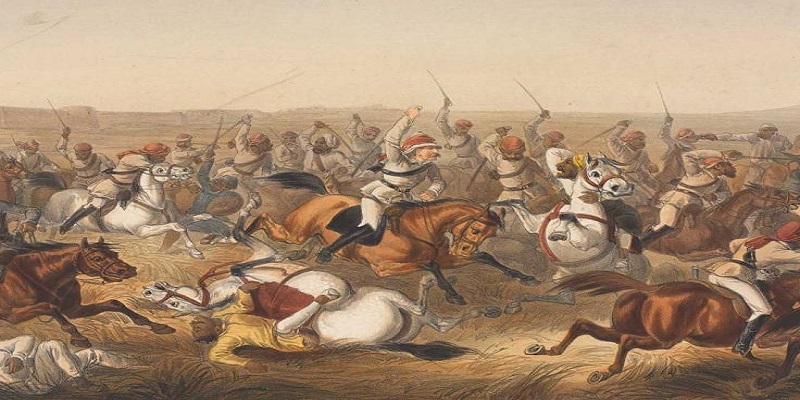The Significance of the Battle of Plassey in Shaping Colonial India
The Battle of Plassey was a significant event in the history of India, which took place on June 23, 1757. It marked the beginning of British colonial rule in India and the end of the Mughal Empire's dominance over the region. However, to fully understand the significance of the Battle of Plassey, it is essential to look at the broader historical context that led up to it.
The period between 1707 and 1857 in India was marked by a gradual decline of the Mughal Empire's power and influence. This decline was caused by a combination of factors, including weak rulers, internal conflicts, and external threats from neighboring empires such as the Marathas and the Afghans. As the Mughal Empire weakened, regional powers began to emerge, leading to a fragmented political landscape.
During this time, the East India Company, a British trading company established in India in 1600, started to expand its influence and power. Initially, the company was only interested in trading goods such as spices, textiles, and tea, but over time, it became involved in politics and governance.
The East India Company's first major territorial acquisition in India was the city of Madras (now Chennai), which it gained through a treaty with the Mughal Emperor in 1639. The company then established trading posts in other parts of India, including Calcutta (now Kolkata) and Bombay (now Mumbai).
In the mid-18th century, the French, who were also trading in India, posed a significant challenge to the British. The French and British had been vying for dominance in India for some time, and tensions between the two powers came to a head in 1746 when the French captured Madras from the British. However, the British were able to recapture the city in 1748, and the two powers signed a peace treaty.
In 1756, a conflict between the British and the Nawab of Bengal, Siraj-ud-Daula, over the issue of fortifications in Calcutta, led to the infamous Black Hole incident. The British were imprisoned in a small, cramped cell overnight, and many of them died due to suffocation and heatstroke. This incident further heightened tensions between the British and the Nawab.
The British responded by sending an army under the leadership of Robert Clive to Bengal. Clive was able to win the support of several local allies, including Mir Jafar, the commander-in-chief of the Nawab's army. On June 23, 1757, Clive's army faced off against Siraj-ud-Daula's forces at Plassey, a village near Murshidabad. Despite being outnumbered, the British were able to defeat the Nawab's forces, thanks to their superior tactics and the support of their local allies. Siraj-ud-Daula was captured and executed, and Mir Jafar was installed as the new Nawab of Bengal.
The Battle of Plassey was significant for several reasons. Firstly, it marked the beginning of British colonial rule in India. The British were now able to expand their influence and power across the region, thanks to their victory over the Nawab of Bengal. Secondly, it demonstrated the effectiveness of the British military's tactics and their ability to win over local allies to their cause. This would prove crucial in future conflicts with other regional powers in India.
However, the Battle of Plassey was also controversial. Many historians argue that the British victory was only possible due to the treachery of Mir Jafar and other local allies. They also argue that the battle was not a fair fight, as the Nawab's forces were significantly outnumbered and outgunned.

